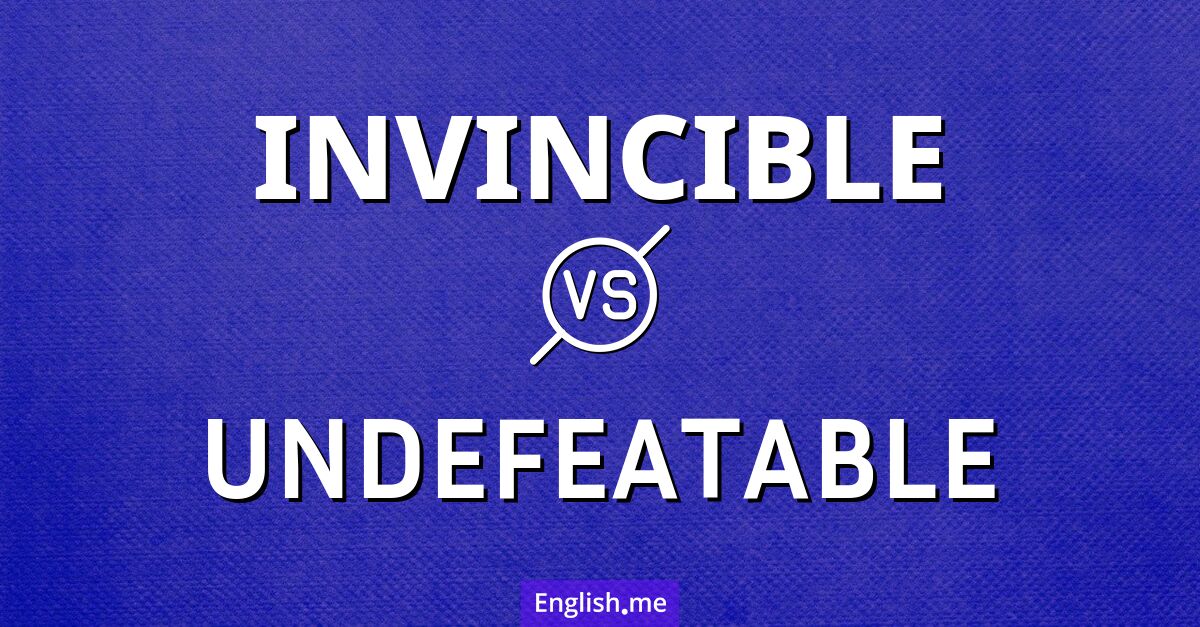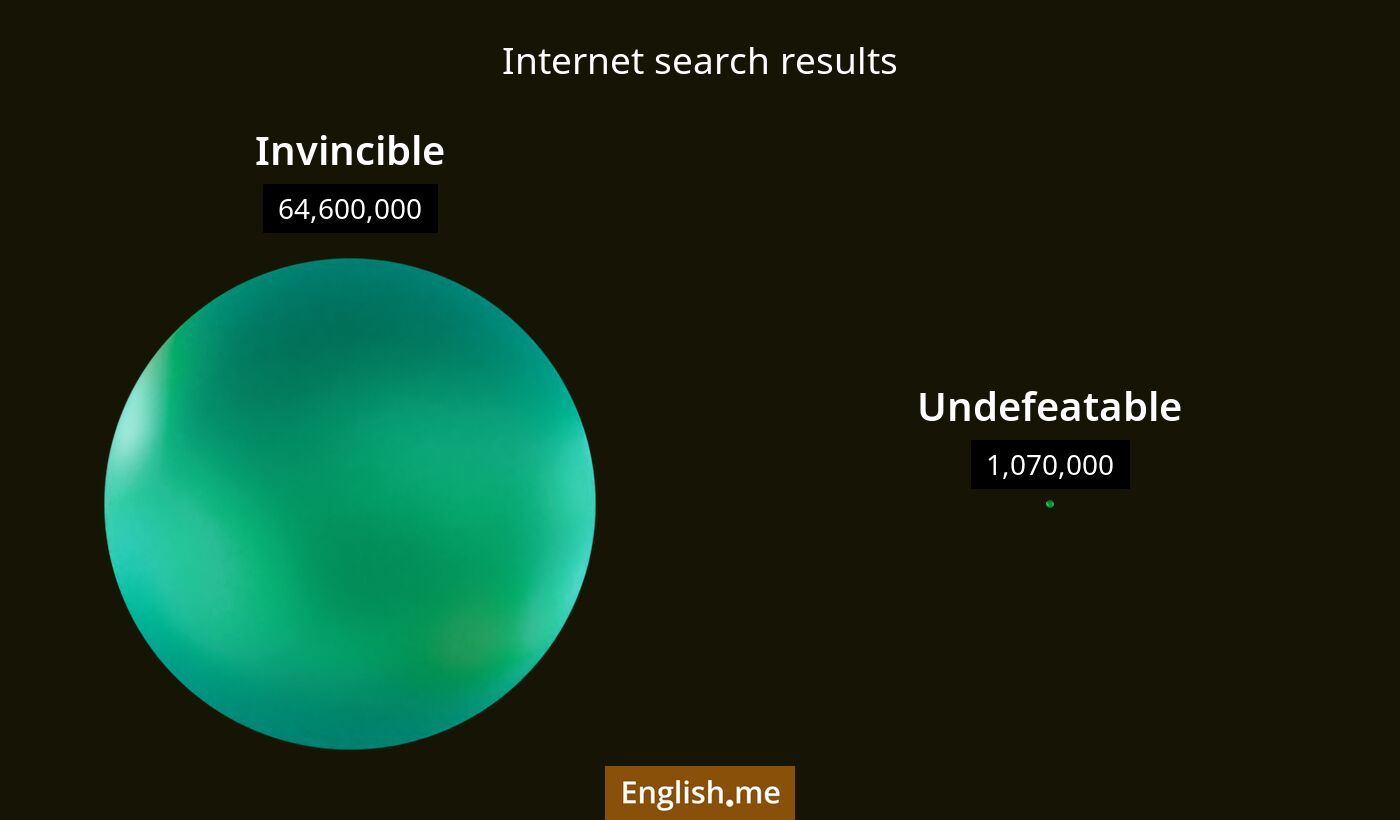"Invincible" vs. "undefeatable": a battle of words
Reviewed and edited by  Anwar Kareem 06/11/2024, 09:44
Anwar Kareem 06/11/2024, 09:44
English.me team member

 What is similar?
What is similar?
Both "invincible" and "undefeatable" describe something or someone that cannot be overcome, defeated, or conquered. They are often used interchangeably in contexts where something is exceptionally strong or resilient.
 What is different?
What is different?
The word "invincible" often implies a sense of being incapable of being conquered or overcome in any context, whereas "undefeatable" specifically refers to being incapable of being beaten in a competition or conflict. "Invincible" can have a broader, more absolute connotation, while "undefeatable" is often used in more specific or situational contexts, like contests or battles.
 Which one is more common?
Which one is more common?

 Examples of usage
Examples of usage
Invincible- The superhero was considered invincible by his fans.
- With her incredible skills, she seemed invincible in the competition.
- The ancient fortress was once thought to be invincible.
- Despite many attempts, the team remained undefeatable throughout the season.
- His spirit was undefeatable, even in the face of great adversity.
- They were determined to create an undefeatable strategy for the game.

 English
English español
español française
française italiano
italiano deutsche
deutsche 日本語
日本語 polski
polski česky
česky svenska
svenska Türkçe
Türkçe Nederlands
Nederlands